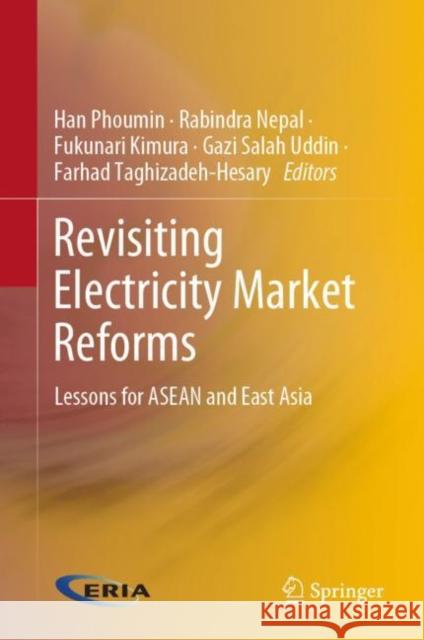Revisiting Electricity Market Reforms: Lessons for ASEAN and East Asia » książka
topmenu
Revisiting Electricity Market Reforms: Lessons for ASEAN and East Asia
ISBN-13: 9789811942655 / Angielski / Twarda / 2022
Revisiting Electricity Market Reforms: Lessons for ASEAN and East Asia
ISBN-13: 9789811942655 / Angielski / Twarda / 2022
cena 442,79
(netto: 421,70 VAT: 5%)
Najniższa cena z 30 dni: 385,52
(netto: 421,70 VAT: 5%)
Najniższa cena z 30 dni: 385,52
Termin realizacji zamówienia:
ok. 16-18 dni roboczych.
ok. 16-18 dni roboczych.
Darmowa dostawa!
This book combines the fundamentals of industrial organization theories based on microeconomic foundations, applied econometrics and environmental and natural resource economics in undertaking a comprehensive review of reforms of the power sector and its impact on industrial and socio-economic performance. The book provides the reader with the intellectual groundwork necessary for understanding the workings and interactions of today’s reforming power markets such as in the ASEAN and East Asia that are striving to achieve the energy policy trilemma of affordability, energy sustainability and energy security. The topics addressed in this book include application of welfare theorems such as competition in and for the market in the electricity sector, market failures such as lack of electricity access, analysis of forecasting models under volatility, energy resource allocation such as renewable energy and competitive market designs of energy markets. Country-specific and region-specific case studies are used to analyze the progress and outcomes of market-driven electricity reforms across the reforming and advanced electricity markets. Therefore, the book derives policy lessons and provides policy recommendations in reforming power markets for the ASEAN and East Asia taking stock of more than three decades of global experience with power sector reforms. The electricity markets case studies are carefully chosen and supported by extensive data analyses as appropriate. This book on energy economics and policy is highly recommended to readers who seek an in-depth and up-to-date integrated overview about the evolving literature and status on electricity market reforms with a particular reference to Asia.











